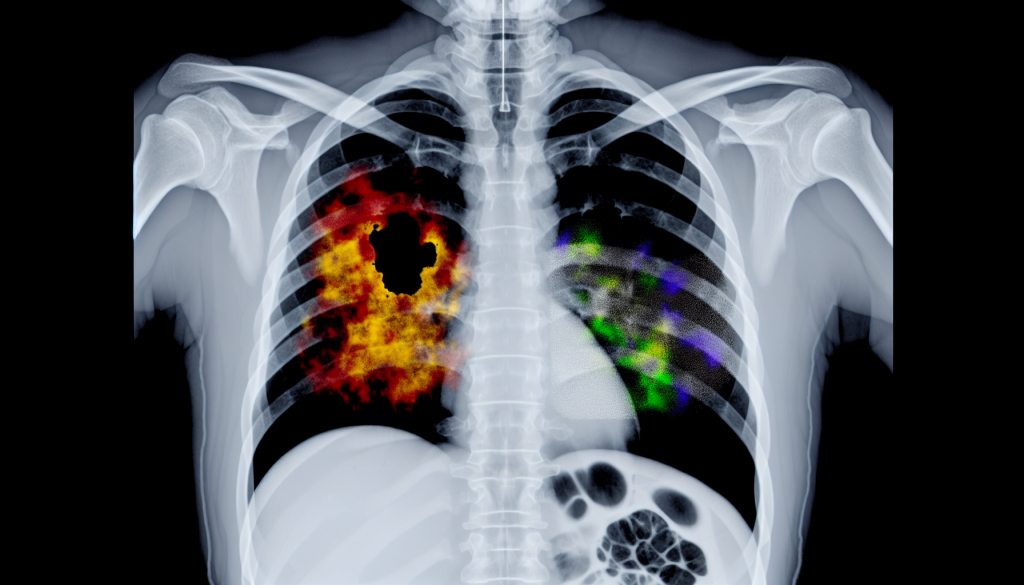Cancer and Alternative Health Options: Essential Information for You
What’s the Takeaway?
Integrative health strategies can support cancer care, but misusing them could be dangerous. To stay safe:
• Never substitute unverified methods or products in place of prescribed medical care for cancer.
• Discuss any additional therapies or supplements with your doctor before including them in your cancer treatment.
Do Complementary Methods Help in Cancer Treatment?
• No complementary method has been proven to prevent or cure cancer.
• Practices like acupuncture, yoga, and mindfulness may ease some symptoms or side effects from standard treatments.
Are Complementary Methods Safe for Cancer Patients?
• Physical and mental therapies such as massage or hypnosis are generally safe with proper use—but may require adjustments for those with cancer.
• Some supplements can interfere with drugs used in cancer treatment, potentially reducing effectiveness.
• Misinformation about false cancer “cures” found online can lead to dangerous outcomes or delayed treatment.
Understanding Cancer
Cancer occurs when certain cells multiply uncontrollably and may spread to other areas. It’s the second most common cause of death in the U.S., but survival rates have improved thanks to earlier detection and better treatments. Nearly two-thirds of people diagnosed with cancer in the U.S. today survive at least five years post-diagnosis.
What Are Complementary Health Approaches?
These are non-mainstream methods that can enhance standard medical care, including natural products and therapeutic practices such as acupuncture and meditation. They can be grouped based on how they work:
• Nutritional: includes herbs, probiotics, and diet plans.
• Psychological: like guided relaxation or mental techniques.
• Physical: practices such as body manipulation or needling.
• Combination: examples include yoga, tai chi, or mindful eating.
This guide focuses on what science says about using these methods for cancer care or comfort and highlights safety considerations.
Adding Complementary Practices to Cancer Care
The Society for Integrative Oncology offers science-based guidance for integrating complementary therapies into cancer care. When used alongside standard treatments, some strategies can improve symptoms and well-being—but they should never delay or replace proven medical care.
Managing Cancer Symptoms with Complementary Methods
Some approaches might help alleviate common symptoms or side effects of cancer treatment. Still, patients should always consult their care teams before beginning any complementary therapy.
Mind and Body Techniques
Acupuncture
• Reviews show it can ease nausea from treatment and possibly reduce pain and fatigue.
• It might lower pain medication use when added to standard pain management.
• It's largely safe when performed with sterile tools—especially crucial for those with weakened immunity.
Hypnosis
• Can aid in handling pain, anxiety, nausea, and even hot flashes tied to cancer or treatments.
• Considered safe if performed by a certified and qualified professional.
Massage Therapy
• Evidence is mixed, but massage may help with pain, general well-being, and anxiety in some patients.
• Therapists may need to adapt techniques—like using lighter pressure—to avoid risk in sensitive areas affected by cancer.
Mindfulness-Based Stress Reduction
• Large reviews suggest reduced depression, fatigue, and anxiety; participants also report better quality of life.
• Generally safe; programs can be adjusted for various health needs.
Tai Chi and Qigong
• Tai chi has been shown to help reduce fatigue and improve quality of life in breast cancer patients.
• Both tai chi and qigong may improve sleep and decrease tiredness, and are considered safe practices overall.
Yoga
• Can lead to improvements in fatigue and emotional well-being, particularly for women with breast cancer.
• Appears to help with anxiety and depression in cancer patients, according to recent reviews.
• Safe when guided properly, although individuals with cancer should seek adaptations if necessary to reduce injury risk.
Nutritional Measures
Ginger
• Ginger is often used to manage nausea, especially during chemotherapy. Results from studies are mixed—some show benefits, others do not.
• Always consult your provider before taking ginger or any supplements during cancer care.
Complementary Methods in Cancer Treatment
None of these methods can cure cancer. Some may even conflict with standard treatments or carry risks. Always speak with a medical professional before use.
Herbal Supplements
• Scientific evidence is limited. Some herbs can react negatively with medical treatments.
Vitamins, Minerals, and Antioxidants
• They may interfere with traditional cancer therapy. It's best to talk with your care team before taking any supplements.
Black Salves
• Not only ineffective for skin cancers, black salves can also damage normal skin and cause severe scarring.
Laetrile
• Derived from fruit pits, this substance lacks any reliable proof of effectiveness and may be toxic.
Intravenous Vitamin C
• The evidence in people is too limited to support its use as treatment. Some studies show improved well-being, but results are inconsistent. Patients with certain medical conditions are at higher risk for side effects.
Curcumin
• A turmeric-based compound studied for both treating cancer and managing side effects. More research is needed before making any recommendations.
Be Cautious of Fraudulent Cancer Treatments
The FDA warns against scams promoting fake cancer cures, which can either be dangerous themselves or cause delays in seeking real medical care.
Be wary of claims such as “cures all types of cancer” or “safer than chemotherapy.”
Always discuss any potential treatment or product with a licensed healthcare provider.
Complementary Methods for Cancer Prevention
You can cut cancer risk by living healthfully, getting vaccinated for preventable viruses, and following screening recommendations. Research continues to explore if or how diet and supplements influence cancer prevention.
Supplemental Vitamins and Minerals
• Vitamin E supplements are not effective in preventing cancer.
• Beta-carotene supplements can be harmful, especially for tobacco users.
• Evidence is lacking for or against other supplement use for prevention.
Green Tea
• Research findings are mixed; it's unclear if green tea helps prevent cancer.
• Drinking green tea is generally safe, but extract supplements have been linked to rare liver problems.
Other Nutritional Options
• Substances like garlic, ginkgo, noni, and grape seed extract need further study before any conclusions can be drawn.
• Some evidence from surveys (not trials) suggests that glucosamine and chondroitin users may develop fewer colorectal cancers—but more study is needed to confirm this.
NIH Cancer Research on Complementary Practices
Current studies supported by the NIH explore:
• Whether a component in American ginseng can reduce inflammation that may lead to colon cancer
• Using mind-body practices to lessen fear of recurrence
• Self-hypnosis for dealing with hot flashes
• The ability of yoga to ease nerve pain from chemotherapy
Additional Considerations
• Learn about the complementary practice you're considering and consult your health team before trying it, especially if you're already undergoing cancer treatment.
• Questions you might ask include: What are the risks? Does it interfere with my treatments? Are there side effects? Can you refer me to a specialist?
• Avoid unproven treatments when dealing with serious conditions like cancer. Stick with scientifically supported therapies recommended by your care providers.
For More Support
Information from NCCIH
The NCCIH provides educational resources on complementary health topics, but does not offer medical advice or practitioner referrals.
Phone: 1-888-644-6226
TRS: 7-1-1
Resources from NCI
The NCI is the federal agency dedicated to cancer research, including efforts on integrative approaches.
Phone: 1-800-4-CANCER
Office of Cancer Complementary and Alternative Medicine
Coordinates cancer-related research in complementary health strategies through NCI.
Science Education
NIH and NCCIH offer tools to help the public understand scientific claims and studies, such as guides, videos, and interactive tools to improve health literacy.
PubMed®
An online database of medical and clinical publications, useful for seeking peer-reviewed literature.
NIH Clinical Trials
The NIH offers a portal that educates the public on the value of clinical studies and how to participate in them.
References and Acknowledgments
The content here references major reviews and scientific studies. Special thanks to staff at the National Cancer Institute and National Center for Complementary and Integrative Health for reviewing the content. This material is in the public domain and can be freely shared. It’s meant for informational purposes and should not replace medical advice from your provider.

